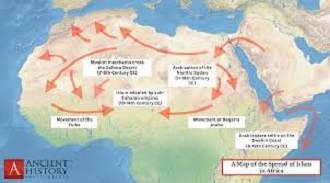African Export-Import Bank (Afreximbank) (www.Afreximbank.com) plans to double its financing of intra-African trade from US$20 billion in 2021 to US$40 billion by 2026, Mr. Haytham ElMaayergi, Afreximbank’s Executive Vice President, Global Trade Bank, has said.
Mr. ElMaayergi was addressing participants and guests in Abuja at the African Caucus Meeting of the World Bank Group and the International Monetary Fund (IMF), from August 1 – 3, 2024 where he represented Prof. Benedict Oramah, President and Chairman of the Board of Directors of Afreximbank. Attended mainly by ministers of finance and Central Bank Governors from across Africa, the meeting had the theme “Facilitating Intra-African Trade: Catalyst for Sustainable Development in Africa”, and was aimed at identifying key challenges facing Africa in achieving full integration and at engaging in strategic dialogues to engender sustainable solutions.
Mr. ElMaayergi said that Afreximbank had been a champion in facilitating intra-African trade since its founding and that it had committed US$1 billion to support the funding of the AfCFTA Adjustment Fund and a US$10-million grant to facilitate the establishment and operationalisation of that fund.
“The Bank is also partnering with the AfCFTA Secretariat and the African Union Commission (AUC) to ensure a successful implementation of the Pan-African Payments and Settlements System, the African Trade Gateway and the Afreximbank African Collaborative Transit Guarantee Scheme,” he continued.
Mr. ElMaayergi noted that Nigeria was a key founding member of the Bank and had continued to play a critical role in its growth and success as its second largest shareholder, adding that Afreximbank had also played a critical role in supporting the country’s development agenda.
“Since inception in 1993, the Bank has approved over US$40 billion in support of Nigerian public and private sector entities,” he said, adding that it was currently implementing several of its flagship continental initiatives in the country, including the African Medical Centre of Excellence and the Afreximbank African Trade Centre.
Highlighting the existence of several other continental multilateral financial institutions created to help address the critical financing gaps in Africa and facilitate trade, with privileges and capitalisation granted them in order to enable them to fulfil their mandates, Mr. ElMaayergi indicated that it was to enhance their effectiveness that the Alliance of African Multilateral Financial Institutions (AAMFI) was launched, in collaboration with the AUC, on the margins of the 37th Ordinary Session of the Assembly of the Heads of State and Government of the AU in Addis Ababa in February.
He noted that the AU had recognized African multilateral financial institutions as crucial for strengthening the continental financial framework and advancing the AU’s Agenda 2063 and called on the meeting participants to reaffirm their commitment to those institutions. He urged the World Bank and the IMF to work with AAMFI in addressing the continent’s challenges.
“Most especially, we call on you to reaffirm that the special privileges and immunities that you have given these institutions, including the preferred creditor status, are essential for addressing the continent’s development needs, and to call upon all stakeholders to respect the treaty obligations you have made to these institutions,” added Mr. ElMaayergi.
The membership of AAMFI currently includes: Africa Finance Corporation; Afreximbank; Trade and Development Bank Group; African Reinsurance Corporation; African Trade and Investment Development Insurance; Shelter Afrique Development Bank; PTA Reinsurance Company; East African Development Bank; and African Solidarity Fund.
A recent study shows that intra-African trade has a positive effect on economic growth. However, FDI has a negative and significant effect on economic growth. The study further shows that the positive impact of intra-African trade on economic growth is enhanced when FDI inflows increase in the host country. Thus, intra-African trade increases overall economic growth when the level of FDI increases in an economy. “With the growth of intraAfrican trade, there is a steadily increasing complementarity between FDI and intra-African trade. Thus, intra-African trade and FDI are complementary in the determination of economic growth,” the study stated.

